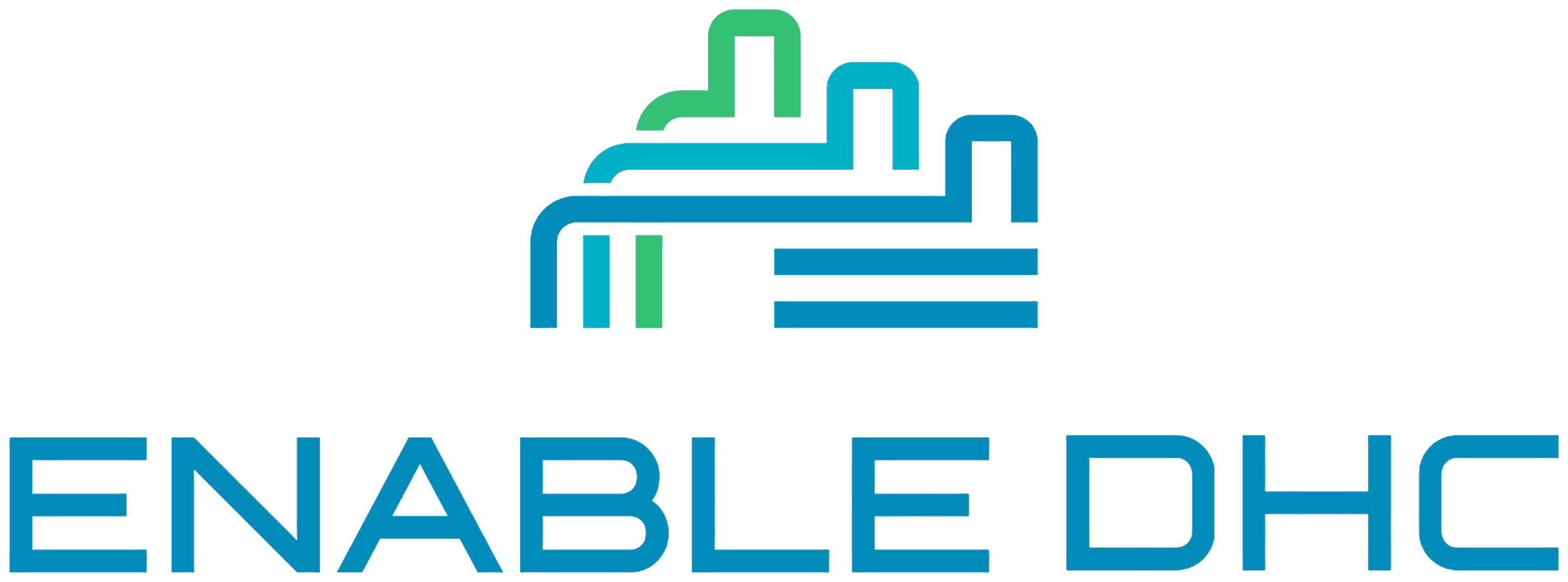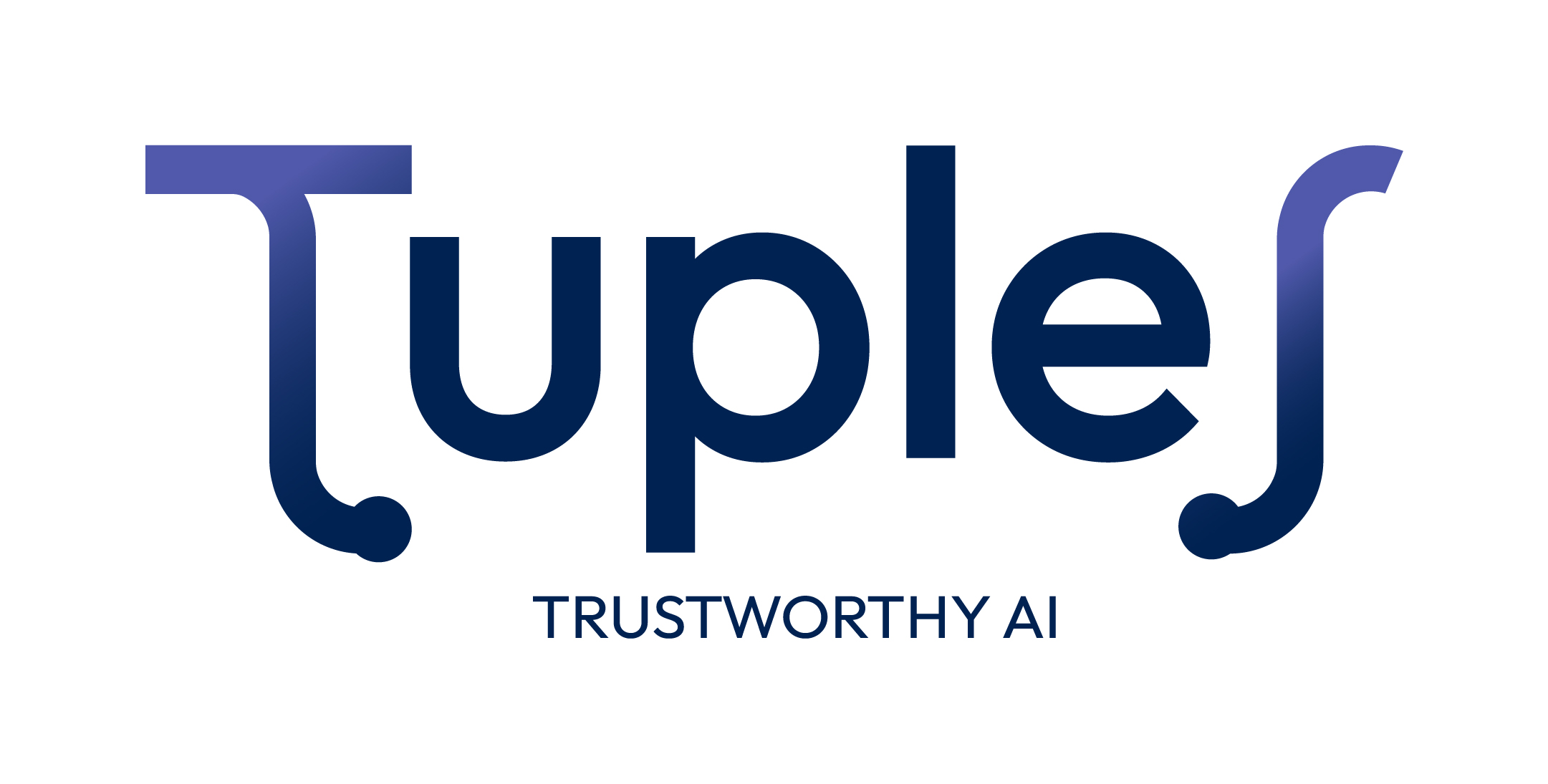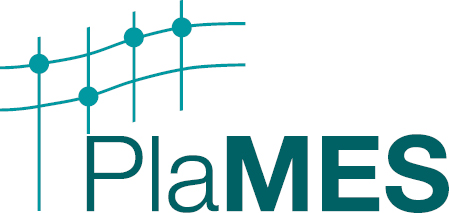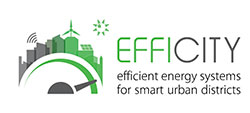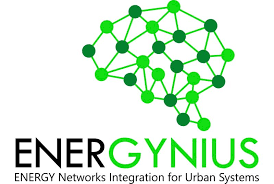Optit contributes to research projects financed at the regional, national, and European levels.
ENABLE DHC Project – Enabling Strategies for Efficient and Sustainable District Heating and Cooling
Optit is part of ENABLE DHC, a LIFE23-CET European project aimed at promoting the transition of district heating and cooling (DHC) systems toward more efficient and sustainable models, in line with EU energy efficiency directives. The project involves 9 case studies in 7 countries (Austria, Croatia, Ireland, Italy, Latvia, Slovenia, Ukraine), where Optit will provide technical support for strategic planning and evaluation of decarbonization investments.
As part of Work Package 3, Optit (WP3 Leader) develops investment plans for each case study, integrating local low-temperature renewable sources such as geothermal, solar thermal, and waste heat recovery. Using advanced technologies like heat pumps and thermal storage systems, Optit will optimize the balance between socio-economic and environmental benefits and investment risks.
Optit will also contribute to implementing the “Case Study Assembly,” a technical board where DHC operators collaborate with the consortium to exchange experiences, tools, and solutions, establishing a reference framework for disseminating best practices, including the analytical methodologies and solutions that we offer to operators in Italy and abroad.
.
This project is financed by the project N°101167576 — LIFE23-CET-ENABLE DHC
TUPLES (TrUstworthy Planning and scheduling with Learning and ExplanationS) is a 3 year project aiming to obtain scalable, yet transparent, robust and safe algorithmic solutions for P&S. It will contribute to a more integrated and human-centered approach to the development of P&S tools, in order to increase confidence in these systems and accelerate their adoption.
The cornerstones of our scientific contributions will be:
– combining symbolic P&S methods with data-driven methods to benefit from the scalability and modelling power of the latter, while gaining the transparency, robustness, and safety of the former;
– developing rigorous explanations and verification approaches for ensuring the transparency, robustness, and safety of a sequence of interacting machine learned decisions. Both of these challenges are at the forefront of AI research.
We will demonstrate and evaluate our novel and rigorous methods in a laboratory environment, on a range of use-cases in manufacturing, aircraft operations, sport management, waste collection, and energy management.
For further information about TUPLES: the Linkedin, Twitter.
Some Optit news about TUPLES,
This project is financed by the European Union as part of HORIZON-CL4-2021-HUMAN-01 No. 101070149
Research and Innovation Action included in Horizon 2020’s project plan. The project, starting in November 2019 with a duration of 36 months, seeks to create an integrated plan for multi-energy systems. Together with the University of Aachen, the Fraunhofer Institute, the University of Bologna, and OEDAS (the utility company in Eskişehir, Turkey), Optit is preparing to confront this challenge by creating the model and tools to generate optimised scenarios for the evolution of systems of energy generation, transmission, distribution, and storage. These multi-energy systems will integrate electric, thermal, gas, and mobile energy on a large scale.
For further information about PlaMES: the website, Linkedin, Twitter.
Some Optit news about PlaMES,
This project is financed by the European Union as part of Horizon 2020’s Framework Programme for Research and Innovation, grant agreement no. 863922.
Innovation Action included in Horizon 2020’s project plan. The Project has started in 2019 and will have a duration of 42 months. RETROFEED will use of the innovative technology of Digital Twins to develop the tools and models required to retrofit various industrial plants (ceramics, aluminium, steel, cement, and agrochemicals), to increase their decarbonisation. Within a large, pan-European network, Optit will be responsible for developing the instrumentation to improve decision-making.
More informations on RETROFEED: website, newsletter, linkedin, twitter.
Some Optit news about RETROFEED.
A video introduction to REtrofeed
This project is financed by the European Union as part of Horizon 2020’s Framework Programme for Research and Innovation, grant agreement no. 869939.
Coordination and support action included in Horizon 2020’s project plan. Initiated in May 2018 with a duration of 36 months, its aim is to identify and consolidate scalable approaches for the improvement of inefficient district heating. Various EU contries are involved, including Lithuania, Poland, Croatia, Bosnia Herzegovina, The Netherlands, Italy, and Denmark. Optit, the leader of Work Package 4 (analysis and qualification of retrofitting actions at the test sites), shares its expertise in the field of district heating with the other partners. Our contribution has led to tangible solutions for optimising district heating networks and, thus, heat production.
Some Optit news about Upgrade.
This project is financed by the European Union as part of Horizon 2020’s Framework Programme for Research and Innovation, grant agreement no. 785014.

Introduction of the technology, know-how, and tools leading to the development of a new, innovative platform
The project covered the realisation of a new investment cycle for Optit, with the acquisition of know-how, licenses and cloud services to further improve the company’s technological capabilities.
Objectives
Upgrade services by integrating the latest-generation tools and instruments, with an improvement in the solutions that Optit can bring to market and the realisation of a new, advanced platform. Moreover, in terms of process innovation, Optit has acquired a mix of services and instruments for improving and consolidating the applied development processes as well as client management.
Results
The results of the project comprise large company growth, impacting Optit’s personnel structure (going from 17 to 28 permanent employees), and a downstream effect on client companies’ environmental practices (reduced energy use, emissions, pollution, and waste) as a result of their optimised logistics (including waste handling).
The project was co-financed by the European Regional Development Fund’s project call Support for Productive Investments – Action 3.1.1 of the POR FESR 2014/2020.
Co-financed by the Emilia-Romagna Region, in progress during POR-FESR 2014-2020 and completed in 2019, the project focussed on the reduction of energy consumption, CO2 emissions, and their relative costs. These objectives were to be reached by taking advantage of information provided by modern monitoring systems and using advanced optimisation algorithms and artificial intelligence.
As an indutrial partner, Optit contributed to the study of the platform for optimising the study itself as well as the management and control of the systems and intelligent energy networks (both conventional and integrated with renewable sources), for use by urban districts.
Energy Network Integration for Urban Systems
Energy coupling, the integration of different energy sources (electricity, fuel, mobility, heating and cooling), will play a key role in shaping the future of the energy sector. The goal is to create a sustainable future, socially and economically, reducing greenhouse gas emissions and improving energy efficiency.
The role of District Energy systems (DE) will be of growing importance in the years to come, considering the increased level of flexibility, resiliency and availability required by local, regional and national energy infrastructures (e.g. e-mobility, prosumers, storage etc).
Energyinius, a project funded by the Italian region of Emilia-Romagna, will define guidelines to shape the energy markets and district energy of the future, developing mathematical models, SW and HW for the simulation of real-time multi-energy networks. Optit will support the development of these systems leveraging decades of experience in the design of digital solutions for solving complex problems.
The project “Mixed-Integer Non Linear Optimisation: Algorithms and Applications” is a Research and Innovation Action included in Horizon 2020’s project plan.
Started in 2018 with a duration of 4 years. The goal of the project is to train the next generation of highly qualified researchers and managers in applied mathematics, operations research and computer science that are able to face the modern imperative challenges of European and international relevance in areas such as energy, logistics, engineering, natural sciences, and data analytics. Twelve Early-Stage Researchers (ESRs) will be trained through an innovative training programme based on individual research projects motivated by these applications that due to their high complexity will stimulate new developments in the field.
The mathematical challenges can neither be met by using a single optimisation method alone, nor isolated by single academic partners. Instead, MINOA aims at building bridges between different mathematical methodologies and at creating novel and effective algorithmic enhancements. These ESRs belong to a new generation of highly-skilled researchers that will strengthen Europe’e human capital base in R&I in the fast growing field of mathematical optimisation. The ESR projects will be pursued in joint supervision between experienced practitioners from leading European industries and leading optimisation experts, covering a wide range of scientific fields (from mathematics to quantum computing and real-world applications).
Do you want to optimise your company’s processes, making them more efficient and sustainable? Contact us !
051.4381574
Or


